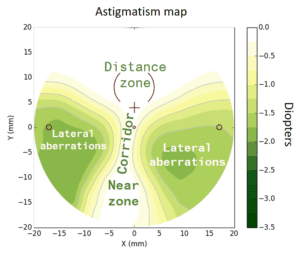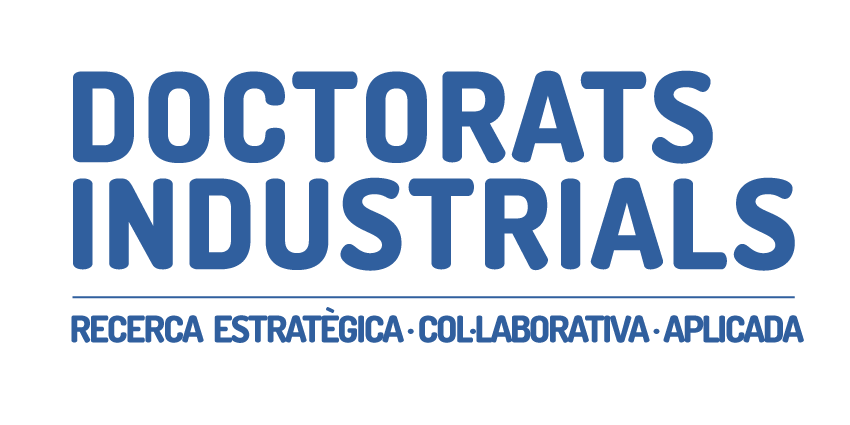NOTÍCIA ORIGINAL – https://bgsmath.cat – 17 Abril 2018

INDUSTRIAL PHDS, A GOOD WAY TO FOSTER RESEARCH & DEVELOPMENT
Glòria Casanellas was one of the speakers invited for the Maths for Industry 4.0 event held on 19 February 2018. She is in the third year of her “Industrial PhD” (“doctorat industrial”) at a company that produces lenses, Horizons Optical, in collaboration with the Polytechnic university of Catalonia (UPC). After completing her degree in mathematics, she has worked in the research and development department of the company for almost ten years. She holds 5 patents on some of the techniques she developed while at Horizons Optical.
What is your PhD about?
I design progressive lenses, more specifically I work on the so-called “unwanted astigmatism”, or lateral aberrations. You have that effect when you try to unite two different lenses. It’s like when you join half an apple with half a plum: the only part where they touch each other is the central axis. For the rest, you have to find a way to smoothen the margins so they can be joined. This is how progressive lenses work, you have to smoothly change the curvature from the near to the far vision. I try to minimize the distortions produced by this smoothing.
How do you deal with this practical problem mathematically?
You could try to figure out a surface that solves this problem. Our approach is different: we use optimization methods. We use the prescription power of the near and far vision to calculate the surface of the lens. In principle, people who wear our lenses have three focusing points: near vision (for reading), middle vision (looking at a screen), and far vision. We obtain a personalized lens for our clients by a careful calibration of something called “corridor length”, an area connecting the far-vision area of the lens to the near-vision area.
How did you decide to begin an Industrial PhD?
In my company, I was the responsible for the optimization techniques. To improve the quality of my work, I wanted to learn more. This is why I first decided to attend a Master in Statistics and Operational Research. I was not really thinking about a PhD, but then “Industrial PhDs” were set up and it seemed like a good opportunity for me.
What benefits does an Industrial PhD have?
There are benefits for everyone. A student has the opportunity to be in contact both with academia and industry, to get the supervision of a researcher, to meet other researchers, to participate in congress, and so forth. Also, it’s a good way to be start working with private companies, some of us were hired by one. The company at the same time has, among its staff, someone who is better trained and in constant contact with cutting-edge science that is useful for the company. During my PhD, we sold a new product that included new aspects of optimization of my research. Finally, Industrial PhDs are also useful for universities: they put them in contact with real-world problems. There is a growing interest among mathematics researchers in the challenges posed by real-world scenarios. It’s also a good way for institutions to foster R&D: in a way, it encourages companies to hire more scientifically better-trained people.
If you want to know more about the event Math for Industry 4.0, read the press release here.


